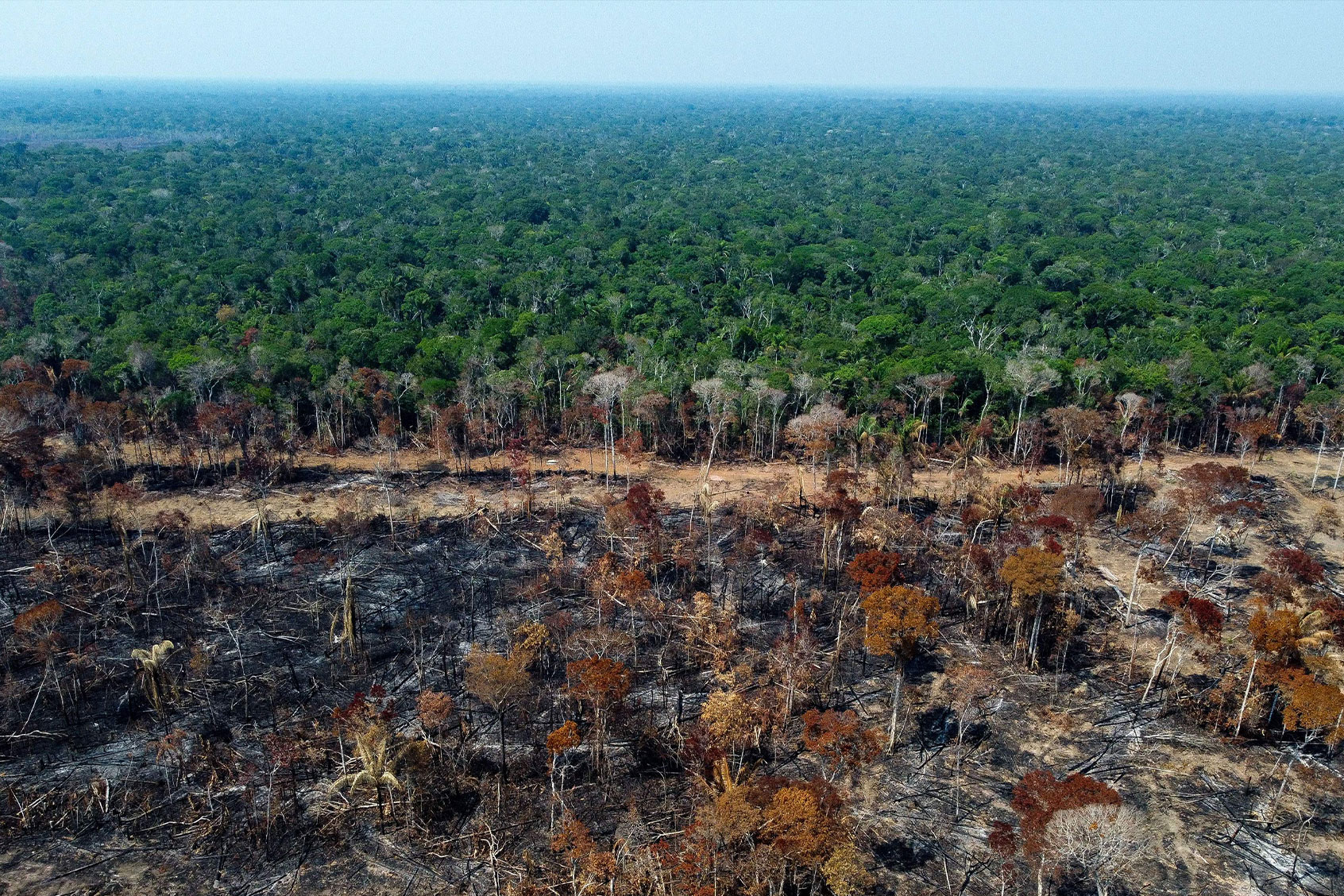August was another month of relatively good news for the Amazon rainforest: The rate of deforestation has continued to decline significantly.
Earlier this week, Marina Silva, Brazil’s environment minister, announced a 66.1 percent decrease in Amazon deforestation compared to last August. That amounted to a loss of about 217 square miles, according to Reuters. These figures come during a time of year when destruction of the rainforest is usually quite high, and follows a similar trend seen in July.
So far this year, the rate of deforestation is 48 percent lower than in 2022 and is at levels not seen since 2018. The numbers are another victory for President Luiz Inácio Lula da Silva, who has made protecting the Amazon a policy priority.
“These results show the determination of the Lula administration to break the cycle of abandonment and regression seen under the previous government,” Marina Silva said, according to the BBC.
So far this year, the rate of deforestation is 48 percent lower than in 2022 and is at levels not seen since 2018
The Amazon, the world’s largest tropical rainforest, covers some two and a half million square miles — an area roughly twice the size of India. It’s a critical carbon sink for greenhouse gas emissions and home to 20 percent of the world’s fresh water. But deforestation and climate change are degrading the Amazon and its ability to sop up carbon from the atmosphere. Some scientists fear that if deforestation continues, the rainforest could reach a point beyond which it cannot recover and would become a grassy savannah.
The tenure of Lula’s predecessor, Jair Bolsonaro, saw a rollback of environmental regulations and enforcement, and a spike in deforestation. Since taking office in January, Lula has, among other steps, renewed efforts to combat illegal clearing and reactivated the $630 million Amazon Fund, which is aimed at supporting the government’s push to protect the rainforest.
“This shows the importance of governments acting on climate change,” Erika Berenguer, a senior research associate focused on the Amazon at Oxford University, said of the figures released this week. She is currently doing field work in the rainforest, and says the decreasing rate of deforestation is an important signal for voters.
“Often people vote and feel disempowered,” she said. “This shows how an election can change the fate of the Amazon.”
Some scientists, however, prefer to follow the annual rather than monthly deforestation data. “It’s a hopeful story,” said Alexandra Tyukavina, a geographer at the University of Maryland who focuses on tropical forest loss. But she adds that there could be a lag in capturing deforestation via satellite imagery and “there is quite a bit of deforestation happening in the second half of the year.”
While the progress so far has been critical, Berenguer calls it “low-hanging fruit” that largely revolved around getting back to where the country was before Bolsarano. “Then you have to pick the fruit at the top of the trees and it’s much more difficult,” she said. “The question becomes what we do to reduce rates even more from what they were pre-Bolsonaro.”
The Lula administration has set a goal of zero deforestation by 2030. But whether Lula meets that goal, or how close he comes, remains an open question, and there is at least some cause for skepticism. A meeting of Amazon nations early this year, for example, failed to reach an agreement on important barriers to progress, such as deforestation targets and the future of oil and gas development in the rainforest.
“We cannot just give ourselves a pat on the shoulder and be happy about it,” said Berenguer. “We cannot get too comfy.”
Read more
about forest health


